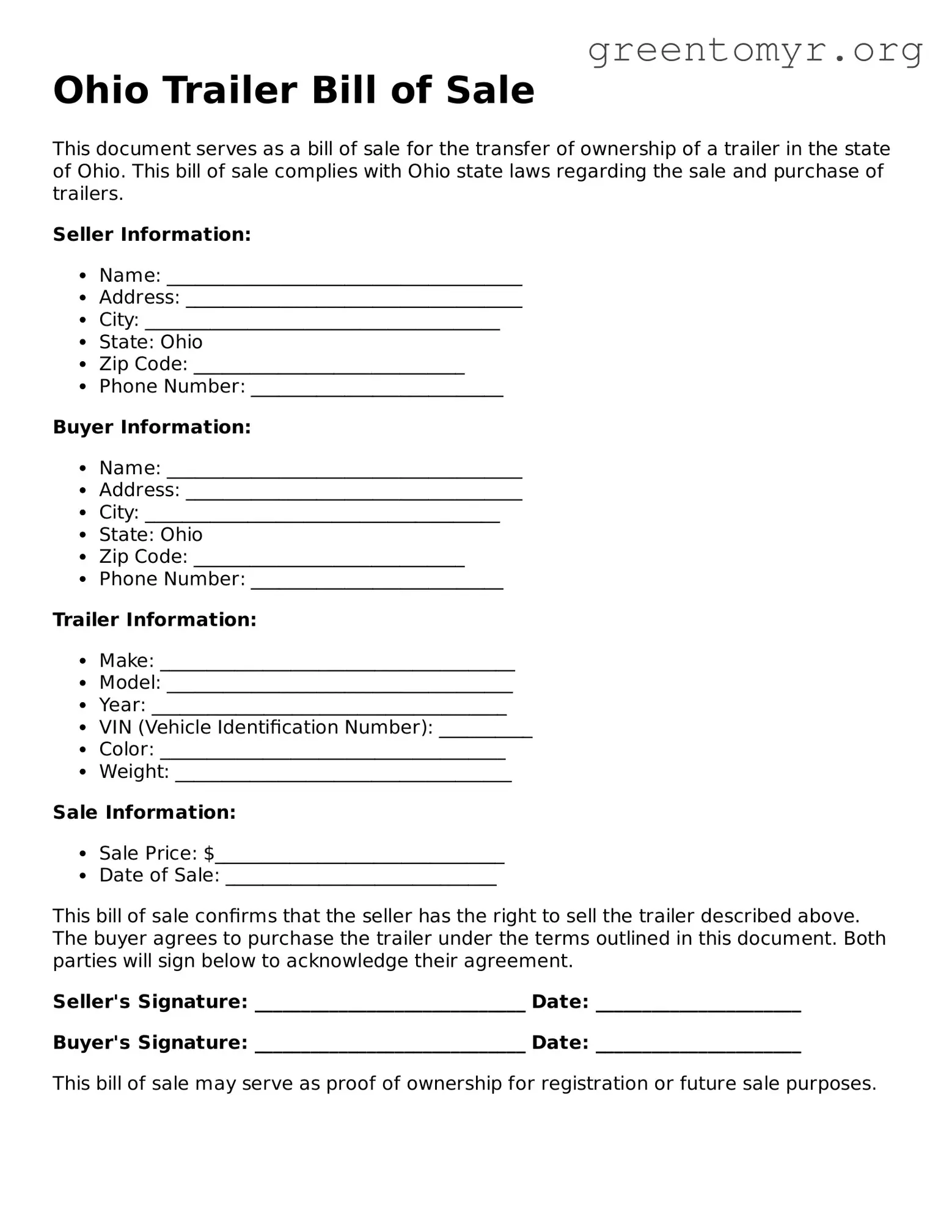What is a Trailer Bill of Sale in Ohio?
The Trailer Bill of Sale is a legal document used in Ohio to transfer ownership of a trailer from one party to another. It captures essential details about the trailer, the seller, and the buyer, ensuring a smooth transition of ownership.
Why do I need a Trailer Bill of Sale?
This document serves several important purposes. It provides proof of the transaction for both buyer and seller. It can also help prevent disputes regarding ownership and it may be required when registering the trailer with the local title office.
The Bill of Sale should contain the following information:
-
Full names and addresses of the buyer and seller
-
Description of the trailer (including make, model, year, and Vehicle Identification Number (VIN))
-
Purchase price
-
Date of sale
-
Signatures of both parties
Is the Trailer Bill of Sale required to register the trailer?
Yes, the Bill of Sale is typically required when registering the trailer with the Ohio Bureau of Motor Vehicles (BMV). The BMV needs this document for verifying ownership and establishing a record of the sale.
Can the Trailer Bill of Sale be used for other types of vehicles?
While primarily designed for trailers, a Bill of Sale can also be created for other types of vehicles. However, you should use specific forms tailored for cars, motorcycles, or other motorized vehicles to ensure compliance with DMV regulations.
Do I need to notarize the Trailer Bill of Sale?
Notarization is not typically required for a Trailer Bill of Sale in Ohio. However, having a notary witness the signing can provide an extra layer of protection and may be recommended for large transactions.
What happens if the trailer has a lien on it?
If there is a lien on the trailer, the seller should resolve the lien before the sale. The buyer should verify that the lien has been released to avoid future legal complications. A Bill of Sale can still be created, but it should clearly state that the trailer is being sold with a lien.
While there isn't a mandated form, many choose to use a generic Trailer Bill of Sale template. This ensures that all necessary information is included. Online resources are available where you can find templates that meet Ohio's requirements.
Can I cancel the Bill of Sale after the transaction?
Once the Bill of Sale has been signed and the transaction completed, it typically cannot be canceled. The signed document serves as a record of the sale. For disputes or errors, it may be advisable to consult with a legal professional.
Where can I obtain a Trailer Bill of Sale template?
Templates for a Trailer Bill of Sale can be found on various legal websites, with many offering free downloads. Make sure to choose a template that complies with Ohio state requirements to avoid issues later on.
